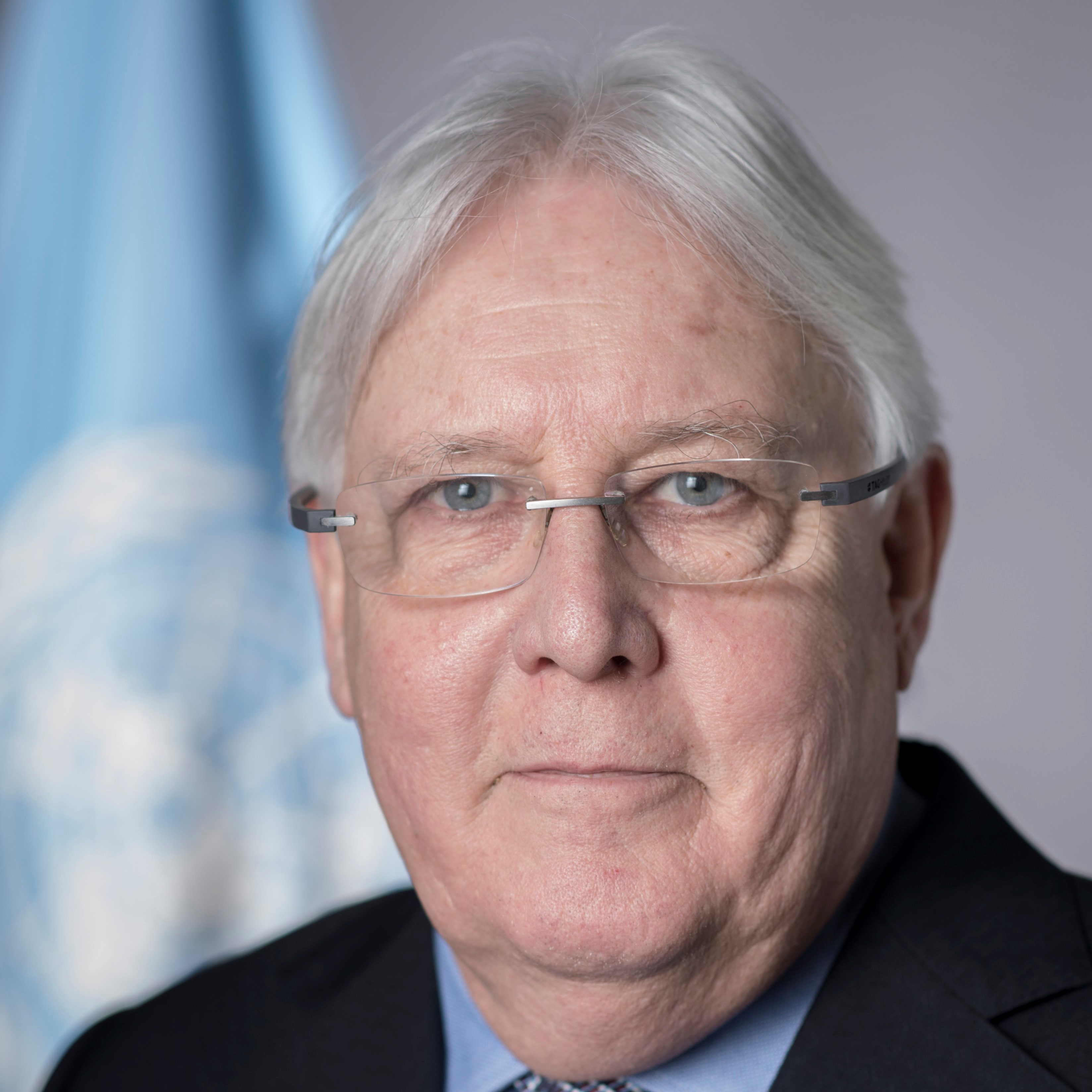UN Envoy to Yemen Gives Vital Statements About Hodeidah, Deployment of UN Monitors and Truce Monitoring Mechanism (Detailed Report)
Yamanyoon
The Special Envoy to Yemen Martin Griffith said the year 2018 was painful for Yemen, but it also gave hope for the Yemeni people because it also brought Yemen peace talks which were held in Sweden earlier this month, hoping that this year would be the lastest for Yemenis to suffer.
According to the UN, the ceasefire that was agreed by both warring parties, regarding the port city of Hodeidah, in addition to the withdrawal of all militants, will take place under the supervision of the Major General Patrick Cammaert who has plenty of experience and ”we are lucky to be working with him,” Griffith commended.
“Within a week of reaching an agreement in Sweden, we began to see people moving and working on the ground in Hodeidah,” Griffith said, stressing that it will be difficult but a good step in order to reach peace. ”Even though the truce is fragile, but in general, the cease-fire agreement in Hodeidah still stands,” he added.
The envoy pointed out how the process that will take place by the General in his mission to Hodeidah, saying that unarmed observers will be stationed under his command in main and governmental locations around the city and the port of Hodeidah, with a strong reporting mechanism. Griffith said there will also be weekly reports which will be submitted to the Security Council on compliance with the Agreement.
”I think this is very important and gives confidence to individuals and the international community and to us that the agreement will be implemented.” The UN special envoy to Yemen said.
The UN envoy said these unarmed observers would depend mainly on the goodwill of the warring parties.
Massive Saudi-Led Military Escalation on Yemen’s Hodeidah as Ceasefire Draw Near-Report
Griffith continued to say that General Cammaert has put on a meeting with his committee last Wednesday, in which both sides have expressed their full support for the monitoring activities. ”We know that the representatives of the two sides know each other very well and have worked together before and give us some confidence” Griffith said. ”A cease-fire agreement can not only be achieved through observation, but success comes through the will of the parties and I have not heard from either side any doubts regarding the agreement of Hodeidah cease-fire. ”This does not mean that it is easy, but I am sure that the will exists.”
As for the UN’s efforts to oversee the port of Hodeidah, Griffith said: “This is important, and it may be more important than the ceasefire itself. ”Liz Grande, United Nations Resident Coordinator and Humanitarian Coordinator, who has exceptional efficiency, and her colleagues in United Nations agencies have drawn up detailed plans.” ”We were fortunate in Sweden to have representatives from her office and WFP, who were very interested since the beginning.” I know that WFP, which will often play a key role in strengthening the work of the Red Sea Ports Authority in Yemen, has already begun to think about how to do so.
Regarding the exchange of prisoners, Griffith said: “There is progress, and the advantage we had on this was that the parties agreed to this before going to Sweden for several days. Second, the two sides know each other well and have negotiated this issue. What we envision, and it would be great if it happens, is that 4,000 prisoners, 2,000 from each side, will be released and flown from Sanaa to Hadramout and vice versa. That would be great for the families of four thousand people, and it would also be a message of hope for the Yemeni people. The International Committee of the Red Cross (ICRC), which was also backing Sweden’s consultations, has agreed to the Department of Air Transport. I hope that will work,” The special envoy to Yemen Martin Griffith, said.
Since March 2015, a military campaign was launched by Saudi Arabia alongside the UAE and other regional countries against Yemen’ revolution, which ousted the former government and ex-president, Hadi, but are still recognized by the world.
According to several reports from humanitarian and non-profit organizations, the death toll in Yemen since the beginning of the Saudi-led war in Yemen has amounted to be more than 56,000 thousand Yemenis.
The West is complicit too in this devastating war, mainly the US and the UK, for selling arms worth billions of dollars to Saudi Arabia and the United Arab Emirates.
Those arms were then proven they have targeted schools, hospitals, funerals, weddings, and the one that got the most attention was the targeting of a school bus going on a trip that resulted in the killing over 40 children.
The United Nations has put pressure on the rivals to end the war that has, according to the UN, caused the impoverished country to reach the brink of famine, threatening the lives of millions in Yemen to starve to death because of this man-made catastrophe.

